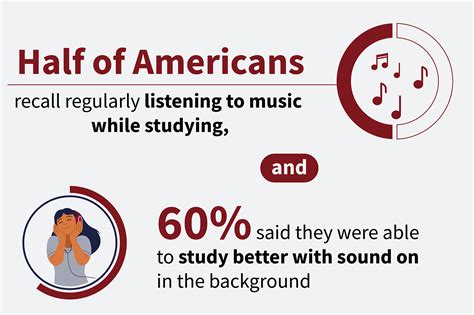Table of Contents
- Can You Study Music?
- What Does Studying Music Entail?
- Benefits of Studying Music
- Step-by-Step Approach to Studying Music
- Music at Different Levels of Study
- Ways to Incorporate Music into Your Life
- Conclusion
Music has been an integral part of human culture for millennia, serving as a form of expression, entertainment, and social cohesion. But can you study music? The answer is a resounding yes!

Can You Study Music?
Absolutely! Music is an academic discipline that can be studied at various levels of education, from elementary school through graduate school. Formal music education includes the study of music theory, history, performance, and composition. Many colleges and universities offer music programs leading to degrees such as Bachelor of Music, Master of Music, and Doctor of Musical Arts.
What Does Studying Music Entail?
Studying music involves exploring various aspects of the subject, including:
- Music theory: Understanding the building blocks of music, such as rhythm, harmony, and melody.
- Music history: Tracing the evolution of music across different cultures and time periods.
- Performance: Developing proficiency in playing or singing music using instruments or the voice.
- Composition: Creating original musical works.
Benefits of Studying Music
Research has consistently shown that studying music has numerous cognitive, emotional, and social benefits. Some of the key benefits include:
- Cognitive benefits:
- Enhanced memory and attention
- Improved problem-solving and critical thinking skills
- Increased creativity
-
Better language and mathematical abilities
-
Emotional benefits:
- Reduced stress and anxiety
- Increased self-esteem and confidence
-
Enhanced mood and emotional regulation
-
Social benefits:
- Stronger interpersonal skills
- Increased empathy and cooperation
- Greater sense of community
Step-by-Step Approach to Studying Music
Embarking on a musical journey can be both exciting and daunting. Here’s a step-by-step approach to help you get started:
- Identify your interests: Determine what aspects of music you are most drawn to, such as playing an instrument, singing, or composing.
- Find a teacher or mentor: Seek guidance from an experienced music educator who can provide personalized instruction and support.
- Practice regularly: Consistent practice is essential for developing musical skills. Set aside dedicated time each day to practice.
- Attend performances: Expose yourself to live music by attending concerts and recitals. This will provide inspiration and help you learn from others.
- Engage in musical activities: Join a choir, band, or orchestra, or participate in musical workshops. These activities offer opportunities for collaboration and performance.
Music at Different Levels of Study
Music can be studied at various levels, each with its own focus and objectives:
- Elementary and secondary school: Introductory music education, including basic music theory, performance, and appreciation.
- College and university: Undergraduate and graduate programs offering specialized training in music performance, composition, theory, and history.
- Graduate school: Doctoral programs focusing on advanced research and academic specialization.
Ways to Incorporate Music into Your Life
Even if you don’t pursue formal music education, there are many ways to incorporate music into your life and reap its benefits:
- Attend concerts and performances: Experience the power of live music and support local artists.
- Learn to play an instrument: Take lessons or use online resources to develop your musical skills.
- Sing in a choir or group: Join a community choir or performance group to enjoy the social and musical benefits of singing.
- Listen to music: Engage with music actively by listening to different genres and exploring the works of renowned composers.
Conclusion
Music is a transformative force in human life. Whether you choose to study music formally or incorporate it into your life in other ways, the benefits are undeniable. From cognitive enhancement to emotional well-being, music has the power to enrich our minds, touch our souls, and connect us with others. Embrace the world of music and discover the profound impact it can have on your life.
Additional Information
-
According to a study by the American Psychological Association, students who studied music for three or more semesters showed significant improvements in spatial-temporal reasoning, which is a skill essential for mathematics and science.
-
A longitudinal study by the University of California, Irvine, found that children who participated in music lessons for 30 minutes twice a week for 3 years exhibited enhanced verbal and spatial reasoning abilities, as well as increased IQ scores.
-
The National Endowment for the Arts reported that 97% of adults in the United States believe that arts education is essential to children’s cognitive and social development.
-
A survey by the National Association for Music Education revealed that 93% of music educators believe that studying music improves students’ attention spans and focus.
-
A study by the University of Oxford found that listening to music can reduce stress and anxiety by up to 60%.
